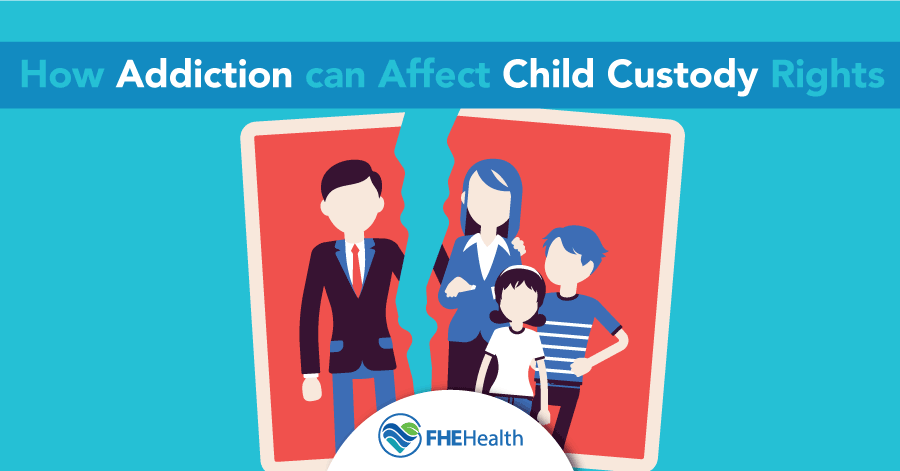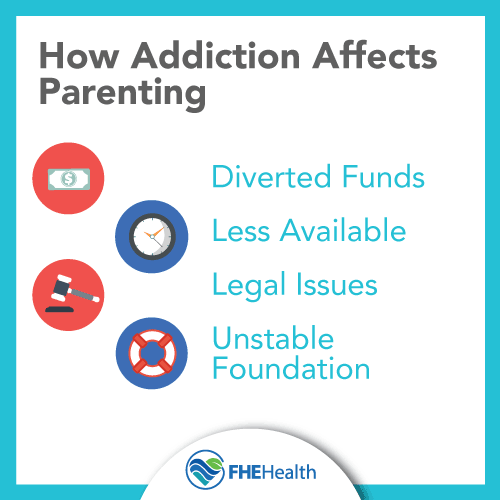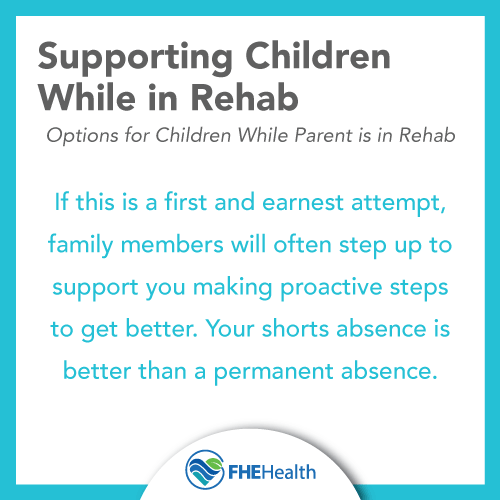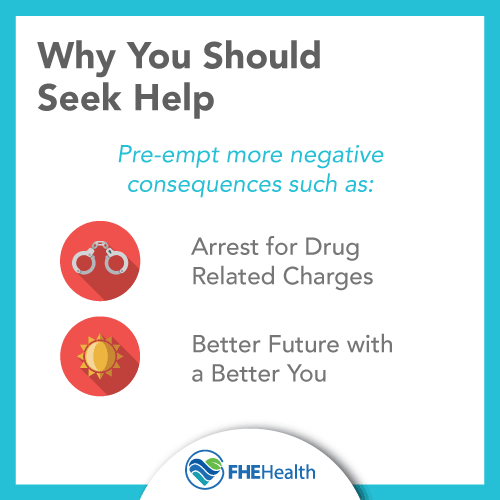
Addiction doesn’t discriminate. Anyone, regardless of age, gender, race, religion or any other qualifier, can fall victim to a substance use disorder. And that, of course, includes parents.
Balancing parenting and addiction isn’t an easy battle, especially for those who started drinking casually or took narcotic pain medication for a legitimate reason, only to end up at the bottom of a deep, dark pit with nowhere to turn.
Unfortunately, despite the importance of raising the next generation in the best possible way, parenting can be a reason to continue to hide drug abuse and forgo getting treatment. Due to a fear of losing custody for admitting a problem, many parents believe that coming forward as an addict can mean losing their families and turning their lives upside-down forever.
The Effects of Addiction on Parenting Ability

Some parents try not to use when their children are present, but this isn’t always sustainable. Sooner or later, addiction becomes too much to bear, and using to get well becomes a part of daily life. Children do notice these things, and their perceptions will ultimately be colored by the excessive negative presence of substance use in their lives.
When addiction becomes more important than family, children suffer. The money diverted to drugs means less to invest in opportunities like museum visits, school sports teams, college funds or healthy food, and the lost time devoted to drugs can never be reclaimed.
Denial and Parenting
Unfortunately, many parents who are facing a substance use disorder don’t always realize the effects their behavior has on their children. Things like a missed homework assignment can mean trouble at school, and a missed carpool shift can leave children sad, embarrassed and stranded. Every little excuse made, like failing to serve a proper dinner “just this once” or leaving children with family members to facilitate drug use, can all add up to bigger issues than you may realize. Forgetting to pick up your child until an hour after school lets out may seem like an innocent mistake to you, but it’s a loss of trust to a child. Erratic or stressed behavior while withdrawing may feel natural to you, but your child will likely see it differently.
Being high or drunk often obscures reality, and parenting isn’t excluded from that. Even functional addiction eventually devolves into something worse, and there’s no way to effectively raise your children when impaired — no matter how much you want to believe otherwise.
The Opioid Epidemic and Foster Care
The impact of the opioid epidemic on the lives of users is well-known; overdoses have been on the rise for the last decade, with each year revealing more deaths than the last. However, these stats are failing to look at the silent victims of the epidemic: children.
Foster care numbers are also increasing, with states seeing anywhere from a 15 to a 30 percent rise in children entering the foster care system. One study even noted a correlation between overdose deaths and a generally equivalent increase in the number of children in foster care. Parental substance use is the reason given for around one-third of foster care placements.
This rise is due in part to overdoses — parents who pass away from drug use are clearly unable to raise their children — but can also be attributed to jail sentences and mandatory rehab terms. When there’s no one left to raise children, the foster care system is often the only alternative.
What Happens to Children When Parents Are in Rehab?

What happens to your children when you go to rehab can depend on a few things, including circumstances and your support network. For parents who have a partner, this can significantly alleviate the challenges in getting treatment. Admitting addiction to a spouse or asking a spouse to shoulder the burden of childcare for potentially months isn’t easy, but a second caregiver removes the challenges of arranging alternatives.
For single parents, the road is harder, but it’s not impossible. Choosing to go to treatment means picking start dates on your own, providing a way to coordinate childcare prior to entering a facility. This may mean asking parents or responsible friends to lend a hand or scheduling treatment during the summer, when a child can be away at camp. Navigating this can be a challenge, and explaining it to your child will likely be a roadblock, too, but by relying on alternatives and opportunities, it’s possible to ensure your child is cared for in your absence. Further, there are some rehab centers that do provide childcare, keeping children and their parents close on the road to recovery.
Why Seeking Help Matters

If you are arrested on a drug-related charge or forced into a rehabilitation program as a part of a legal case, you may no longer have a choice. Married individuals or those living with a long-term partner will likely not face a foster care situation unless a partner is also a substance user, but the children of single parents will very likely end up in the foster care system. This can mean placement with an area family or a potential term in a group home or children’s shelter. The foster care system generally attempts to place children with relatives, but this is not always possible.
While the foster care system is a wonderful resource for youths with no other alternatives, it can be devastating for children, particularly for those who once knew a nice home life with a loving parent. Being removed from an environment, moving from home to home and changing schools can lead to emotional and behavioral problems, as well as a disrupted education. This process can also challenge familial ties; if your child must go into foster care because you are in jail or in treatment, your relationship may not be the same after you regain sobriety.
Securing custody after successful rehabilitation often isn’t easy, either. The ultimate goal of foster care is reunification whenever possible, but the state is often reluctant to hand over children to a newly sober individual. As such, the process to regain custody may take years of supervised visits, regular drug tests and home checks as the state evaluates your competency as a parent. You will likely also need to get a full-time job in order to demonstrate your ability to provide a loving, stable and supportive home. Around three in five foster children are reunited with their families.
Getting the Right Kind of Treatment
Getting clean as a parent means a serious and dedicated commitment to sobriety with the best possible odds of avoiding relapse. This kind of help doesn’t mean drying out in detox for a few days; it means going through a full spectrum of addiction care, including detox, inpatient and outpatient programs. It’s tempting to sober up as quickly as possible to return to your children, but your family is best served by a true attempt to get clean and stay clean. A comprehensive treatment program can provide coping mechanisms, therapy options and an exploration into the drivers behind abuse — in short, the kinds of things that can greatly benefit you in your new life. Taking this approach can also involve bringing others into the mix; by enlisting family and friends to help you succeed, you can strengthen your family unit and create a necessary support system.
As a parent with a substance use disorder, getting help is the single best choice you can make for yourself. By truly committing to getting clean, you can do right by yourself and your family.






